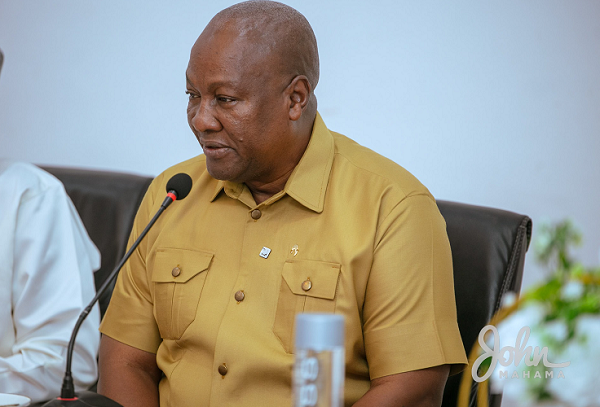The Tema Oil Refinery is set to see a revamp if the National Democratic Congress(NDC) is voted into power come December 7, 2024.
This was disclosed by the flagbearer and leader of the largest opposition party, the National Democratic Congress (NDC), John Dramani Mahama.
Addressing attendees and players of the petroleum downstream, the former President outlined a number of measures which include the revamping of the nation’s first and largest refinery, the Tema Oil refinery (TOR).
Mr. Mahama noted that, restoring the integrity of the oil refinery will help extensively with the surge in prices of petroleum products although crude oil is drilled in Ghana.
He added that, a joint private-public partnership will be secured to help in reviving Ghana’s dysfunctional refinery.
He said, “We need to look again at how we can bring the refinery back in place. But I do think that the problems we have with running that refinery is because it is a state-owned enterprise.
“And we all know the inefficiencies that go with state-owned enterprises. And so we are open to private partnership in terms of bringing that refinery back into operation and running it, but we think that whatever private partnership or private participation is invited, it must come through a transparent process.”
Founded on December 12, 1960, as the Ghanaian Italian Petroleum (GHAIP) Company, Tema Oil Refinery (TOR) stands as Ghana’s premier crude oil processing facility. Originally Italian-owned, the government became the sole shareholder in April 1977, prompting a name change to TOR in 1991. Today, TOR is authorized to refine and sell petroleum products, playing a vital role in Ghana’s energy sector.
The evolution of Tema Oil Refinery reflects the vision of Dr. Kwame Nkrumah for Ghana’s economic growth through the discovery of crude oil. The initial partnership with ENI, the subsequent government ownership, and the eventual name change to TOR mark significant milestones in the refinery’s history. From a tolling refinery to a wholly government-owned entity, TOR has played a crucial role in Ghana’s industrial and economic development.
But for a long period of time, the refinery has not been able to refine the needed quantity of petroleum due to the inefficiency of the machines and other management challenges.
Source: peacefmonline.com




